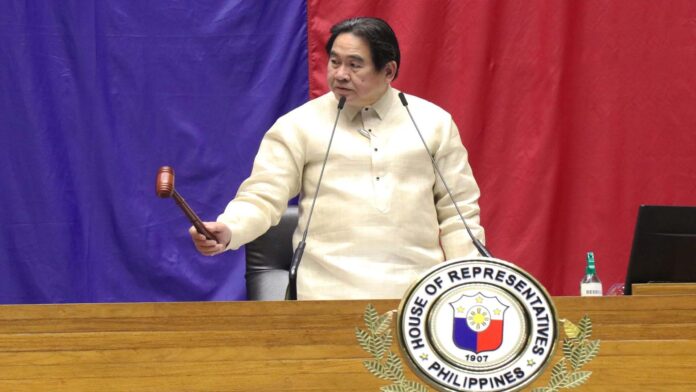Cagayan de Oro City 2nd District Rep. Rufus Rodriguez on Wednesday said he is inspired by the growing support for the amendment of the Constitution’s economic provision among members of the Cabinet of President Ferdinand R. Marcos Jr.
He said Finance Secretary Benjamin Diokno was the latest Cabinet member who supported the House of Representatives’ move to rewrite the 1987 Constitution’s restrictive economic provisions.
“We are heartened by Secretary Diokno’s supportive statement. He is an influential voice in the administration and in the business community,” he said.
Rodriguez, chairman of the Senate Committee on Constitutional Amendments, said five Cabinet members have previously submitted their position papers to his panel upon his request in the previous public hearings.
He said the position papers came from Trade and Industry Secretary Alfredo Pascual, National Economic and Development Authority Director-General Alfredo Balisacan, Interior and Local Government Secretary Benhur Abalos, Social Welfare and Development Secretary Rex Gatchalian and Foreign Affairs Secretary Enrique Manalo.
Pascual told the panel that recently-enacted laws provide some space for liberalization in certain sectors of the economy such as foreign investment, retail trade and telecommunications.
“However, we still note that several foreign equity restrictions are still enshrined in the Constitution, rather in an investment law or sectoral legislation, which actually makes economic reform more challenging…I think we’re the only two countries (the other is Myanmar) that have economic restrictions, foreign (investment) limitations that are enshrined in the Constitution,” he said.
For his part, Balisacan said NEDA would be open to revisiting or amending the restrictive economic provisions “in line with, of course, the goal of propelling our growth, projecting our global position upward.”
Abalos said the DILG has written its Core Constitutional Reform Handbook which advocates Charter amendments, including “liberalizing citizenship-based restrictions on foreign direct investment.”
Gatchalian said: “We believe that amending the Constitution is timely and necessary, particularly the economic provisions that are already outdated and are no longer in the context of the present economic situation.”
“A lot of foreigners want to retire in our country, but they want to own their retirement home. They end up, more often than not, marrying a Filipina, as a workaround. They want to own an investment, it’s very difficult for them,” Manalo said.
Rodriguez said local government units grouped under the Union of Local Authorities of the Philippines led by Quirino Governor Dakila Cua, have also supported the House initiative.
“Whether through the process of a constituent assembly or constitutional convention, we can clearly see that some changes are necessary to address the various challenges the country is facing,” Cua said.
Rodriguez said the economic team of former President Rodrigo Duterte, led by then Finance Secretary Carlos Dominguez, had likewise backed efforts to change the Charter’s economic provisions.
On March 6, the House of Representatives voted to approve on the third and final reading Resolution of Both Houses No. 6 calling for a hybrid constitutional convention (con-con) that would propose amendments to the economic provisions of the Constitution. (PNA)
Photo credit: Facebook/RufusBRodriguez


